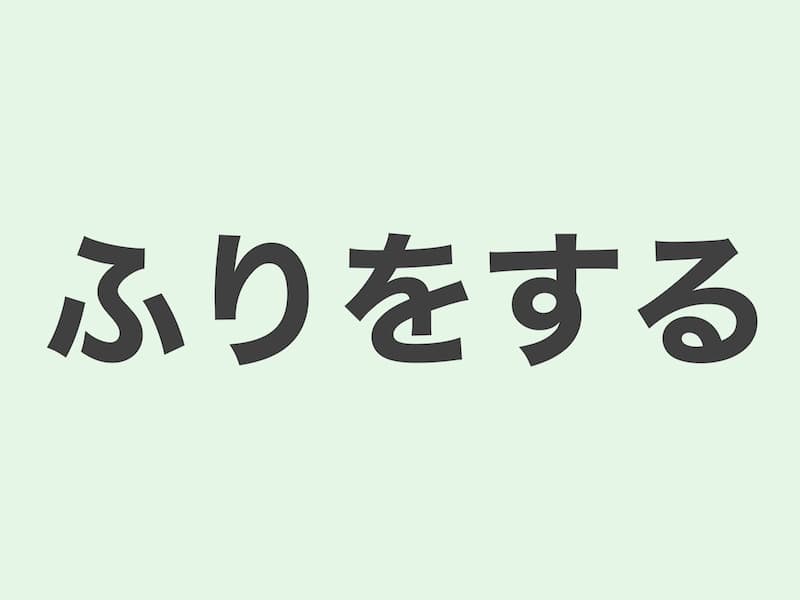説明 (Explanation)
文法(Grammar):普通形・な形容詞な・名詞の+ふりをする
意味 (Meaning):「ふりをする」という表現は、実際の自分とは違う態度や振る舞いをして、他の人に誤解を与えたり、自分を隠したりします。
英語(English):”ふりをする” in English refers to pretending or acting in a way that differs from one’s true feelings or nature. It involves presenting oneself with a behavior or attitude that is not genuine, often to mislead others or to conceal one’s true intentions or emotions.
JLPT Textbook Recommendations
例文 (Examples)
- 子どもたちは寝ているふりをしている。
- 会議中、彼は理解しているふりをしていたが、実際には何も聞いていなかった。
- 知らないふりをする。
- 彼は優しいふりをして、みんなに好かれようとしているようだ。
- 彼は忙しいふりをしている。
- 彼女は元気なふりをしていたが、本当はとても疲れていた。
- 彼女は真面目なふりをした。
- 子どもは風邪のふりをして、学校を休んだ。
ひらなが (Hiragana)
- こどもたちはねているふりをしている。
- かいぎちゅう、かれはりかいしているふりをしていたが、じっさいにはなにもきいていなかった。
- しらないふりをする。
- かれはやさしいふりをして、みんなにすかれようとしているようだ。
- かれはいそがしいふりをしている。
- かのじょはげんきなふりをしていたが、ほんとうはとてもつかれていた。
- かのじょはまじめなふりをした。
- こどもはかぜのふりをして、がっこうをやすんだ。
英語翻訳 (English Translation)
- The children are pretending to be asleep.
- During the meeting, he acted like he understood, but he actually wasn’t listening at all.
- Pretending not to know.
- He’s pretending to be kind to try to get everyone to like him.
- He’s pretending to be busy.
- She appeared cheerful, but she was actually very tired.
- She pretended to be serious.
- The child pretended to have a cold and skipped school.





コメント